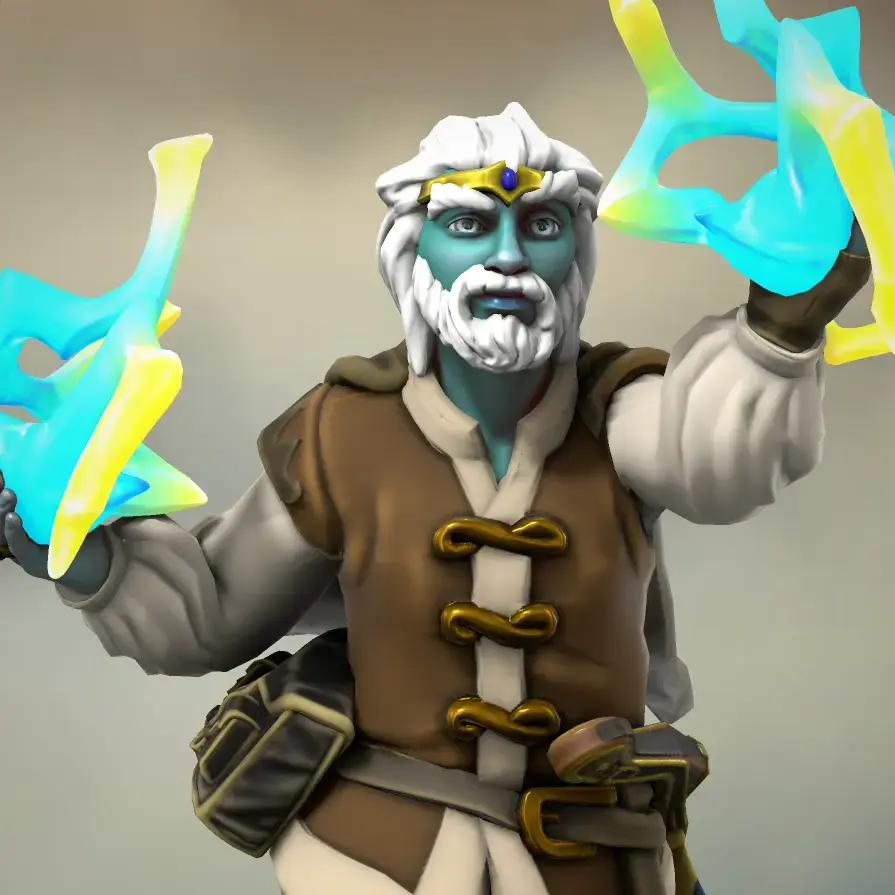That’s a great idea for any kind of character development.
I’m stealing it.
Yeah, that’s fucking slick right there.
Roger Zelazny wrote that he’d sometimes do an entire story about a minor character in order to flesh him out in his mind.
So, 4 out of 5 rumours are true?
I’d say make it like this:
- Rumour that’s hard to believe but true
- Rumour that’s true, but not too interesting
- Rumour that’s based on something that actually happened, but the facts have been distorted
- Rumour that makes the player look good, but is false
- Rumour that makes the player look bad, and is false
If there are only 2-3 other players, each one gets 1 or 2 rumours. If there are a lot of players, you might duplicate some of them. You could ask the player to pick the rumour that’s most popular about them, and some extra copies of that one get handed out.
So, about half the rumours are true, or based on something true. Half are false or distortions. There’s one that the character might want people to continue to believe, even if it’s false. Another one that is a lie that the player can’t seem to shake. Another one where it’s a true story, but maybe the character is just tired of having to re-tell. On the other hand, maybe it’s a tale of heroism that they love to tell people about.
IMO having one that makes the player look good, but is false, and one where the facts have been distorted are the most interesting ones. A paladin-type character would probably want to clear up the rumours even if they made that paladin look good. A rogue might want people to believe all the rumours even the ones that make them look bad, just so that nobody really learns the truth about them. A bard might want to string people along, building more rumours and making even the true stories into fanciful tales.
Imma try
I’m playing a kobold artificer who used to be a wild magic sorcerer, before a wild magic surge blew up his left arm and leg and severed his connection to the weave
-
I heard that he made his own prosthetic limbs while he only had one arm
-
I heard he invented those weird goggles (he calls them “shutter shades”) to help with the migraines that sunlight gives him
-
I heard he blew up his whole school when he was just a kid, and vowed to never use his sorcery powers again
-
I heard he’s Professor Hakase’s favorite artificer student
-
I heard he worships Tiamat. You can never trust those kobolds…
The first 3 are really interesting. They make me want to know more about your character. I especially like the shutter shades one, because it draws you in and makes you want to know more about how they work, why he has migraines, etc.
I have a suggestion for one though: “I heard he made a deal with Tiamat, giving up his limbs to gain secret knowledge.” I like the idea of people thinking the limbs getting blown off wasn’t an accident, but was a deliberate trade. You can imagine how that kind of rumour would spread, especially among people who don’t trust artificers because they’re scared of “technology”.
The migraines aren’t actually all that interesting, he just has sunlight sensitivity because I’m using the old VGM Kobold race stats. They remove the Sunlight Sensitivity trait, but because they occlude his vision, he has disadvantage on perception checks and attack rolls that rely on sight while he’s wearing them. I do like your take on the bad rumor though, it fits much better!
-
Interesting.
Awesome. Stolen!
Only really fits settings where PCs are somewhat famous, at least on a town-level, or already somewhat know each other. If the party starts not knowing each other, why would they have heard any rumours about these other randos?
Take a comic book character like Bruce Wayne of Peter Parker. Someone could take one look at them and come up with some dirt. Remember, it doesn’t have to have anything to do with reality. Every pretty girl is a slut, a snob, or a dope. Every big guy is a bully, a moron, or a cream puff.
Bruce Wayne is a billionaire philanthropist, but I’ll give you Peter Parker in the timelines where he’s not working on the cutting edge as a scientist.
The question isn’t “why would they have rumours?” but “why would the party be privy to them?” If you’re famous, these rumours float around by themselves but why would the party be asking about the other members? Again, unless they were somewhat famous or already knew each other.
The sticking point is the word “rumour” or “dirt”. Rumours are thinking that build up slowly, like dust in a corner. It almost sounds like you’re saying players should form impressions of the other party members which…yeah, that should happen when they get described.
why would the party be asking about the other members?
Look up old time writer Damon Runyon. His short stories inspired the musical ‘Guys And Dolls.’ He wrote about Times Square and the showgirls, gamblers, crooks, bar flies, social workers, servers, bouncers, general riff raff, and hoi polloi that he’d seen.
It’s common in his stories for people to strike up a conversation with a stranger and ask about what’s going on. Even a small time hustler will be known by sight, and a stranger in town is evaluated.
Also, remember that when you ask A about B, A is telling you a lot about themselves. In ‘Stranger Things,’ the boys warn the new girl that the town is full of bullies, which tells her that these are the kids who get bullied.
epic outer planes level character
Have them meet at a tavern, someone at the tavern knows them and can give all of the gossip.
It can even be made into a game where you have to earn the gossip.
Yeah it seems good for characters starting at level 4, those starting at level 1 are too insignificant to have any juicy rumours, but early level events become rumour as you get further from the place, time and people involved
My group got to level 2 in a dungeon crawl in which they got pretty wealthy. They had a deal with the guy who owned the entry to the dungeon, which they honoured, but no one else knows what they faced underground, how wealthy they got…
I can imagine they’ll hear about their exploits amplified if they go to a t in a neighbouring town
“I heard you like smoking cheese. What an interesting hobby”
Lights up a cheese string. “You’re damn right!”
So, if you are a first level character who is new in town that should be a complete stranger, how do you play that?
A level 1 player character is assumed to have taken on at least 1 somewhat notable quest or mission. That’s why they are level 1 and not a pissant peasant with virtually no stats. You might not be known world wide, and you wouldn’t have saved the world or anything grandiose as that; but maybe your fighter was a city guard and known to have stomped out some bandit camps in the region or helped hold back the advance of a goblin horde.
With the players themselves having these rumors, they’re already in the same area to have met each other so why wouldn’t they have possibly heard about some of the deeds the rest of the party may have had before they met?
New in town doesn’t mean unheard of. You could build up a reputation on the way to town that is being passed around by other travelers.
And some if the rumors could be things that happened the night before.
Imma try
I’m playing a kobold artificer who used to be a wild magic sorcerer, before a wild magic surge blew up his left arm and leg and severed his connection to the weave
Two good: I heard he made his own prosthetic limbs, I heard he used to be a powerful sorcerer
Two bad: I heard he blew up his school by accident, I heard he killed his teacher
One false: I heard he blew up his school on purpose
deleted by creator
Rumors about the character not yourself my man
And the players are the ones making them for themselves so they can just make the bad and false ones be insignificant if it bothers them so much.
You need to ask permission before asking a player to create their own backstory?
No, you need to get opt in from your players before making a storyline centred around misleading rumours
Buddy missed the “roleplaying” part of rpgs
What you have is trauma you need to work through. Not a sensitivity to make everyone else’s problem.
I think I’m missing something from your perspective here? The idea in this image only works with the players consent at the first step of the process? If the player wants to nix it, they have the chance to do so before it’s ever used in game.
I saw this meme, and thought it sounded great, so if I were going to bring it to my table, it would have been pretty much exactly in the form I read here.
How would you suggest that a GM approaches it to get player consent that is different to how it’s laid out here?
You’re getting dragged, but I think I get your point: that it might seed suspicion and distrust among not only the characters but the players?
I think it should be Rule 0 that the DM and players all respect each other’s boundaries, so consent is always part of the equation IMHO. Likewise, if everyone at the table insists on playing a certain way that I’m uncomfortable with, then it’s time for me to find a new table.
deleted by creator
I still don’t understand why creating rumours about your character would be triggering for anyone.
How would a made up stories like “Borun caught a cheater at dice and string him up upside down hanging from the flag pole” or “Borun’s horse went lame, but instead of putting him down, he paid a farmer to take care of him for life” bring up trauma? Especially since you’re writing these yourself…
Or is the existence of rumours triggering somehow? In which case, maybe P&P RPGs aren’t an appropriate activity since a lot of adventures rely on piecing together rumours to identify what’s really going on.
The thing is, that it was, from my understanding, never about the actual players, but the fictional characters. Aka my high elf loves gambling a bit too much etc.
Oh agreed: I just thought the meta-nature of the players themselves being unsure of the veracity of character information might make things weird for folks uncomfortable with gossip. In any case I think it sounds like a fun idea!
Wow, fuck all the other replies to this.
People harmed by gossip in real life don’t want it in their escapism. How unreasonable, apparently.
I mean the player is being asked to do it. The DM isn’t doing it for the player. The player can say whatever they want as “true” or “false,” and if they only want true rumors, just tell the DM?
I’m probably missing something, but I’m confused as to how asking a player for some additional information in their character building that gets shared with the group to facilitate the game can be triggering in a way that goes beyond the game. I really do hate the “if you don’t like it, don’t play” response, but there are some things where the trigger is inherent to the activity.
deleted by creator
Ngl that last sentence seems like a pretty weird thing to mention…
Actually going to agree with this one. To adress the other commenters pushing against this post. Yes, roleplay can trigger a trauma response especially if it is done without consent. And creating a backstory is far different than creating pieces of a backstory, having it passed around to the other players and having the potential of conflict because of rumors. A lot of people will find that fun (I’m thinking of using this in my next campaign), if you have had a terrible experience with this it won’t be.
On the other side of the coin, roleplay can be a wonderful way of facing traumas, but it has to be done right and with consent. Having clear communication between DM and players should be default and if allowing one player to not participate in that or have an altered participation (maybe leave out the one false), then so be it.
I also think it’s sort of fucked up to dogpile this post.
your username suits you nicely











